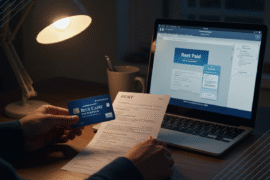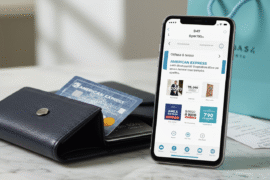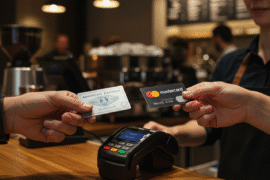This article may contain references to products or services from one or more of our advertisers or partners. We may receive compensation when you click on links to those products or services. Nonetheless, our opinions are our own.
Data breaches are just about a daily occurrence. Whether it’s at a hospital, business school, energy provider or any other business with personal data on file, hackers are finding more ways to steal information and possibly later use it for fraud.
Checking a credit report each month to make sure thieves haven’t opened accounts in your name is a regular chore worth doing to protect your personal information and thus your credit score. It’s also worthwhile to review your bank, credit and other financial statements each month for unauthorized charges.
But, what may help the most are three tools that are common in the credit world but may not be so common to consumers: fraud alerts, security freezes, and credit locks. Here’s how they work:
Fraud Alert
This is a free alert you can place with one of the three major credit reporting bureaus — Equifax, Experian or TransUnion. Once the alert is placed with one bureau, it will pass it on to the other two.
A fraud alert is a notice put on your credit report warning prospective lenders that you’re the victim of identity theft. Lenders who see this warning should take extra steps to verify your identity before giving credit to someone claiming to be you. For example, a bank may try to contact you one of several ways and verify your identity before approving you for new credit.
An initial fraud alert lasts for 90 days. It can be renewed for another 90 days after the first alert expires. It can also be extended for seven years if you’ve been the victim of identity theft.
The 90-day alert allows you to get a free credit report from each credit bureau every time you renew the alert. You can also get a free annual credit report from each credit reporting bureau.
Credit Freeze
Also called a security freeze, a credit freeze is an extra step beyond a fraud alert that can offer more protection. Although most states require it to be free for ID theft victims, it can cost $2 to $12 to start, lift, or remove a credit freeze.
A credit freeze does what the name implies — it “freezes” or locks access to a credit file against anyone trying to open a new account or get new credit in the person’s name. It’s more severe than a fraud alert. If you think your information or credit cards have been stolen and you’re at high risk of fraud, a credit freeze may be worthwhile. It blocks most lenders from seeing your credit history and can be the best way to protect against fraud.
But that protection comes with a price. It also shuts out companies that you may want to do business with, such as lenders, insurers and cellular service providers that may want to check your credit report before doing business with you. To get around that with an active credit freeze, you have to temporarily lift the freeze with a PIN and set a date for the freeze to be reinstated automatically.
Banks that you already have accounts with can still check your credit report under a credit freeze, as can collection agencies and certain government agencies.
A credit freeze may be free, depending on your circumstances and the state you live in. Identity theft victims who have filed a police report may receive a free credit freeze.
Otherwise, you may have to pay $2 to $12 to lift the security freeze at each credit bureau. You may also have to pay to get a replacement PIN to log into your account to access information about the freeze.
Before starting a credit freeze, be aware that it may delay approval for new credit because creditors won’t be able to view your credit report. If you’re shopping for a loan soon, you may want to wait until after your loan is approved before starting a credit freeze. A fraud alert may be your best option until then.
Credit Lock
A credit lock is similar to a credit freeze and should be easier to use. It’s offered by a credit reporting company and allows users to lock and unlock the account online easily instead of having to verify their identity each time a lift or security freeze is done.
Credit locks usually require an annual fee, such as around $60. A credit lock lasts for as long as you pay the annual fee.
The lock only works for the credit reporting company that you start it with, requiring credit locks to be done with each company if you want all your information to be locked.
The credit reporting company Equifax allows consumers to name specific companies that can have access to their credit report. So, if you’re applying for an auto loan through Wells Fargo, for instance, you can authorize Wells Fargo to access your credit report at Equifax through a credit lock.
Where to Start?
If you’re unsure where to start among these three main choices, a fraud alert is the best first step to stopping ID theft. A fraud alert is free.
More than one method can be used at the same time. If you think your risk of ID theft is high, set up a credit freeze or credit lock. Both are expensive, though a credit lock may be easier to set up but can ultimately cost more than a credit freeze.
Aaron Crowe is a freelance journalist who specializes in personal finance writing. He owns two personal finance websites, including CashSmarter.com where he writes about his family’s finances. He can also be found at AaronCrowe.net.

Reviewed and edited by Albert Fang.
See a typo or want to suggest an edit/revision to the content? Use the contact us form to provide feedback.
At FangWallet, we value editorial integrity and open collaboration in curating quality content for readers to enjoy. Much appreciated for the assist.
Did you like our article and find it insightful? We encourage sharing the article link with family and friends to benefit as well - better yet, sharing on social media. Thank you for the support! 🍉
Article Title: 3 Best Ways to Stop Your Credit Report From Being Hacked
https://fangwallet.com/2023/05/25/3-best-ways-to-stop-your-credit-report-from-being-hacked/The FangWallet Promise
FangWallet is an editorially independent resource - founded on breaking down challenging financial concepts for anyone to understand since 2014. While we adhere to editorial integrity, note that this post may contain references to products from our partners.
The FangWallet promise is always to have your best interest in mind and be transparent and honest about the financial picture.
Become an Insider

Subscribe to get a free daily budget planner printable to help get your money on track!
Make passive money the right way. No spam.
Editorial Disclaimer: The editorial content on this page is not provided by any of the companies mentioned. The opinions expressed here are the author's alone.
The content of this website is for informational purposes only and does not represent investment advice, or an offer or solicitation to buy or sell any security, investment, or product. Investors are encouraged to do their own due diligence, and, if necessary, consult professional advising before making any investment decisions. Investing involves a high degree of risk, and financial losses may occur including the potential loss of principal.
Source Citation References:
+ Inspo












































